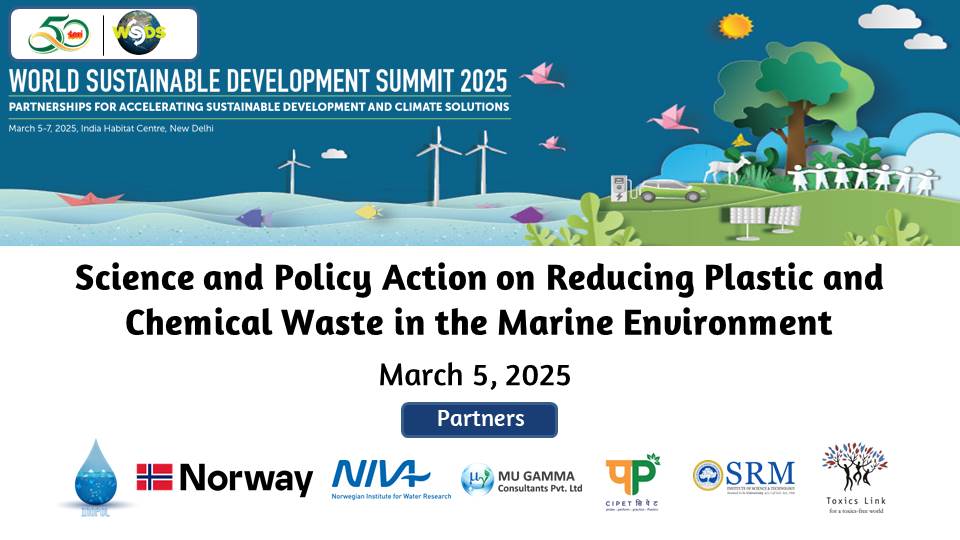WSDS 2025 Thematic Track- Science and Policy Action on Reducing Plastic and Chemical Waste in the Marine Environment

India is a significant contributor to marine plastic pollution, primarily due to its large population, extensive coastline, and challenges in waste management. Recent estimates indicate that India generates approximately 9.3 million tonnes of plastic waste annually, accounting for nearly 20% of the global plastic waste. Of this, about 3.5 million tonnes are mismanaged and leak into the environment each year, surpassing other major polluters such as Nigeria, Indonesia, and China.
Efforts are underway to address this issue. The Indian government has initiated steps towards formulating a National Marine Litter Policy, aiming to track and monitor litter, develop circular economy solutions, and implement extended producer responsibility to reduce, reuse, and recycle plastics.
Addressing these challenges necessitates science-based approaches to effectively manage plastic waste and POPs, thereby safeguarding the natural environment from the detrimental impacts of such pollution.
Objectives of the thematic track
- Sharing and building knowledge and capacities to tackle plastic and chemical pollution and its associated social, economic, and environmental impacts
- Identify opportunities associated with reducing plastic and chemical waste in the marine environment
- Build a robust science-informed research foundation for policy relevance.
Policy Recommendations/ Outcomes
Strengthen Science-Based and Region-Specific Policy Frameworks: The event highlighted the importance of empirical data and regionally tailored research, such as pollution mapping along the Cauvery River, to inform targeted and effective policy interventions. Local adaptation in monitoring frameworks was recommended to account for varied riverine and waste system dynamics.
Enhance Transparency and Regulation in Plastic Manufacturing: Stakeholders underscored the need to regulate toxic additives and ensure transparency in the plastic value chain. Standardisation and certification of recycled materials were recommended to maintain quality and safety, supporting a circular economy model.
Strengthen Implementation and Monitoring of EPR and Waste Management Policies: While Extended Producer Responsibility (EPR) policies were recognised as pivotal, continuous innovation, robust enforcement, and monitoring mechanisms were identified as essential for their success. Integrating recycled plastics into higher-value applications was recommended to avoid downcycling and support long-term sustainability goals.
Watch Here

